National Institute of Aquatic Resources and Department of Environmental Engineering from Technical University of Denmark are partners in the HOTSPOT project.
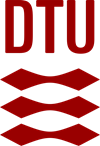 DTU Departments
DTU Departments
Two departments from the Technical University of Denmark is involved in the HOTSPOT project:
National Institute of Aquatic Resources (DTU Aqua) has a high international standing within marine research centering on physical, chemical and biological oceanography, fish and fisheries, aquaculture, coastal ecology and management of aquatic resources. The oceanography group in DTU Aqua, where HOTSPOT is located, focuses on the physical-biological coupling in the ocean, for instance, on how small-scale physical processes shape the individual interactions and how these interactions scale to population and ecosystem level processes.
Visit the website of DTU Aqua
Department of Environmental and Resource Engineering (DTU Sustain) is one of the largest university departments specializing in environmental and resource engineering in Europe. The Department is working to develop new environmentally friendly and sustainable technologies, methods and solutions, and disseminate this knowledge to society and future generations of engineers. The Department's activities in research, teaching and innovation are focused within six scientific sections, of which the section Circularity & Environmental Impact is involved in the project. The Department has modern and well-equipped research laboratories, which also are used in many teaching-related activities.
Visit the website of DTU Sustain
People from DTU
People from DTU involved in the HOTSPOT project:
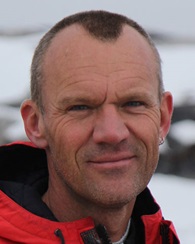
Torkel Gissel Nielsen, DTU Aqua is the project coordinator of the HOTSPOT project. He is a Professor, Dr. scient, and PhD and has specialized in experimental plankton ecology, regulation of structure and composition of pelagic food web. Impact of climate change, oli exploration and microplastics on food web composition and energy transfer. Field and experimental work in arctic, temperate and tropical ecosystems. Participation (often as cruise leader) in more than 50 multidisciplinary research cruises since 1987. The last 20 years he has on average received more than 1 mill DDK per year in external founding through projects that he has coordinated or contributed significantly to. Supervision of master (60) and PhD (15) students. He had published 180 ISI registered papers (H-index 40).
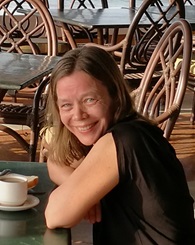 Marja Koski, DTU Aqua is an Associate Professor and has specialized in zooplankton, particularly in their role in food web efficiency and in the biological carbon pump. Her research includes aspects on the effects of diverse pollutants on the secondary production and food-web transfer, as well as investigations to understand the zooplankton mechanisms contributing to degradation of sinking particles. Marja Koski has ca. 50 peer-reviewed publications, teaches annually in several courses dealing with biological oceanography, coordinates the master programme of DTU Aqua, and is an associate editor of the Journal of Plankton Research.
Marja Koski, DTU Aqua is an Associate Professor and has specialized in zooplankton, particularly in their role in food web efficiency and in the biological carbon pump. Her research includes aspects on the effects of diverse pollutants on the secondary production and food-web transfer, as well as investigations to understand the zooplankton mechanisms contributing to degradation of sinking particles. Marja Koski has ca. 50 peer-reviewed publications, teaches annually in several courses dealing with biological oceanography, coordinates the master programme of DTU Aqua, and is an associate editor of the Journal of Plankton Research.
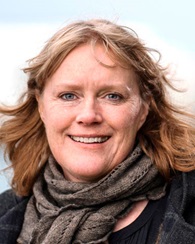
Sigrún Huld Jónasdóttir, DTU Aqua is a Senior Researcher. She received her MSc in Oceanography from the University of Washington, Seattle USA, PhD in Marine Sciences from SUNY, Stony Brook NY, USA, and Dr. Techn from DTU. Her research interests are in marine lipid ecology, effects of dietary lipids on population and food web dynamics, physical and biological adaptive drivers of lipid accumulation in zooplankton and role of zooplankton in carbon sequestration. She has authored or co-authored more than 55 peer-reviewed papers and 1 monograph.
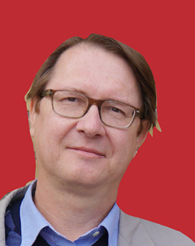
Stefan Trapp, DTU Sustain is a Professor for Environmental Chemistry. Research interests focus on fate and effects of pollutants in the environment, and on green solutions.
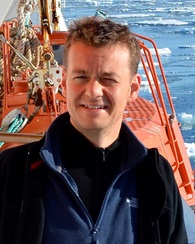
Colin Stedmon, DTU Aqua is an Associate Professor. His current research is centred around chemical oceanography and environmental spectroscopy. Chemical oceanography is the study of the chemical composition of seawater and understanding how both physical and biological processes influence the biogeochemical cycling of elements in the sea. Spectroscopy is the study of the interaction of light with matter. In his research he uses it as an approach to study the distribution and turnover (biogeochemistry) of matter in the ocean.
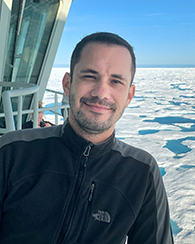 Rafael Gonçalves-Araujo, DTU Aqua is a Tenure Track Researcher at DTU Aqua. He received his BSc and MSc in Oceanography from the University of Rio Grande (FURG, Brazil) and his PhD degree from the University of Bremen in collaboration with the Alfred Wegener Institute for Polar and Marine Research (Germany). His research interests are focused on monitoring the carbon cycle in ecosystems spanning from coastal to open seas and from tropical to polar regions. He uses a combination of in situ water sampling and bio-optics, as well as satellite-derived observations and experimental approaches. Relevant parameters analyzed in his research are: phytoplankton, particulate matter, dissolved organic matter, and sediments, along with water chemistry and hydrography.
Rafael Gonçalves-Araujo, DTU Aqua is a Tenure Track Researcher at DTU Aqua. He received his BSc and MSc in Oceanography from the University of Rio Grande (FURG, Brazil) and his PhD degree from the University of Bremen in collaboration with the Alfred Wegener Institute for Polar and Marine Research (Germany). His research interests are focused on monitoring the carbon cycle in ecosystems spanning from coastal to open seas and from tropical to polar regions. He uses a combination of in situ water sampling and bio-optics, as well as satellite-derived observations and experimental approaches. Relevant parameters analyzed in his research are: phytoplankton, particulate matter, dissolved organic matter, and sediments, along with water chemistry and hydrography.